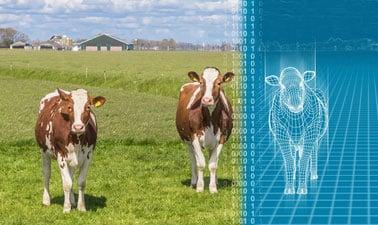MOOC List is learner-supported. When you buy through links on our site, we may earn an affiliate commission.

MOOC List is learner-supported. When you buy through links on our site, we may earn an affiliate commission.
Demystify complex big data technologies
The sheer volume of a typical data set doesn’t fit on even the largest computer. And the tools that can handle big data seem too complex to grasp. To tackle these challenges, principles – such as immutability and pure functions – will help you understand big data technology. This makes big data management accessible, regardless of the programming language.
Specifically, should you scale up or scale out, how do you process big data stacks with map-reduce, using clusters, etc. In short, learn to recognise and put into practice the scalable solution that’s right for your situation. To illustrate, we will use current tools – such as Hadoop HDFS and Apache Spark – on user-friendly, hands-on examples from the agri-food sector. However, these principles can also be applied to other sectors.
Complexity of data collection and processing
Agri-food deserves special focus when it comes to choosing robust commercial data management technologies due to its inherent variability and uncertainty. Ranked the #1 university in Animal Sciences and Agriculture, Wageningen University & Research specialises in the interdisciplinarity between its knowledge domain of healthy food and living environment on the one hand and data science, artificial intelligence (AI) and robotics on the other.
Combining data from the latest sensing technologies (e.g. weather data) with machine learning/deep learning methodologies, allows us to unlock insights we didn’t have access to before. In the areas of smart farming and precision agriculture this allows us to:
- Better manage dairy cattle by combining animal-level data on behaviour, health and feed with milk production and composition from milking machines.
- Reduce the amount of fertilisers (nitrogen), pesticides (chemicals) and water used on crops by monitoring individual plants with a robot or drone.
- More accurately predict crop yields on a continental scale by combining current with historic data on soil, weather patterns and crop yields.
In short, big data will allow us to bring forth effective solutions for smarter, innovative products. The possibilities are seemingly endless!
For whom?
You are a manager or researcher with a big data set on your hands, perhaps considering investing in big data tools. You’ve done some programming before, but your skills are a bit rusty. You want to learn how to effectively and efficiently manage very large datasets. This course will enable you to see and evaluate opportunities for the application of big data technologies within your domain. Enrol now.
This course has been partially supported by the European Union Horizon 2020 Research and Innovation program (Grant #810 775, “Dragon”).
What you'll learn
- Recognize big data characteristics (volume, velocity, variety, veracity)
- The difference between scaling up and scaling out
- Big data principles: immutability and pure functions
- Processing big data with map-reduce, using clusters
- Understand technologies: distributed file systems, Hadoop
- How dataframes and wrapper technology (Apache Spark) make life easier
- The big data workflow and pipeline
- How data is organized in datalakes, using lazy evaluation
- Develop insight how to apply this to your own case
Syllabus
Module 1: Big data definition and characteristics
In module 1, you will learn how to recognize the characteristics of a big data problem in agriculture, to see where its biggest challenge lies. Should the solution focus on size, speed, various formats or uncertainty of data? Should you scale up or scale out?
Module 2: Big data principles: what are they and why do we need them
In module 2, you'll learn the principles that are required for scaling out: immutability and pure functions, and map-reduce. What are these and why do we need them?
Module 3: Bring those principles to practice
Module 3 shows you how to bring those principles into practice. You will learn what a cluster is, and how a distributed file system in a client-server architecture works, with Hadoop. You will understand why such a system is indeed scalable.
Module 4: Big data technologies that make implementation so much easier
Module 4 goes further into the application of big data technology, the “big data stack of technologies". The main message here is that if you know what you want to do, these technologies can take the work out of your hands. For example, you will see Apache Spark, a big data technology platform, that applies map-reduce for you.
Module 5: The big data workflow and pipeline; the how and why of datalakes
Module 5 dives deeper into the data. You'll learn about datalakes and why a datalake is different from a traditional database. You'll understand what a big data workflow looks like and what a pipeline is.
MOOC List is learner-supported. When you buy through links on our site, we may earn an affiliate commission.
MOOC List is learner-supported. When you buy through links on our site, we may earn an affiliate commission.
